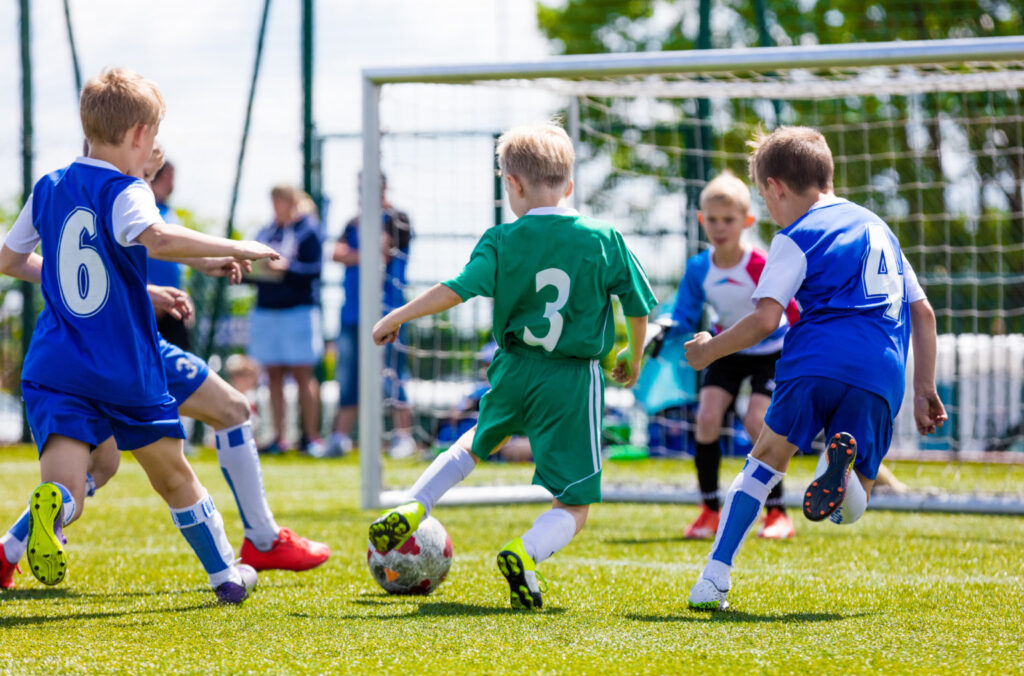
By: Luke D’Apice (Physiotherapist)
Winter in Australia brings a packed calendar of team sports, with football, soccer, and netball
dominating the fields and courts. As the colder months set in, athletes face unique
challenges, including stiffer muscles, increased injury risk, and demanding match schedules.
Whether you’re an amateur or an elite competitor, working with a physiotherapist can
significantly enhance your performance, prevent injuries, and keep you playing at your best
throughout the season.
Why Physiotherapy Matters in Winter Team Sports
Football, soccer, and netball all require frequent sprinting, rapid changes in direction,
jumping, and tackling. These high-intensity movements put a sport specific stress on
muscles, joints, and ligaments. Injury prevention and recovery are key ingredients to a
successful season.
A physiotherapist plays a crucial role by:
Enhancing strength and flexibility
Improving agility and coordination
Preventing and managing injuries
Aiding in post-game recovery
With proper physiotherapy support, athletes can train smarter, play harder, and reduce their
time spent on the sidelines.
Strength and Conditioning for Winter Sports
Building strength and endurance is essential for the demands of football, soccer, and netball.
A physiotherapist designs sport-specific conditioning programs to prepare athletes for the
physical challenges of their game.
Football (AFL & Rugby League/Union)
Football requires explosive power, tackling strength, and endurance. A physiotherapist will
focus on:
Lower body strength – Squats, lunges, and resistance training for strong legs and
core stability.
Upper body conditioning – Shoulder and arm strengthening to handle tackles and
contests.
Speed drills – Sprint training and ladder drills are just two examples of sport specific
exercises targeting those fast twitch muscle fibres which are no doubt of vital
importance in these winter sports.
Soccer
Soccer players need a balance of speed, agility, and endurance. A physiotherapy program
may include:
Plyometric training – Jumping drills for explosive acceleration and rapid stops.
Core stabilization – Exercises to improve balance and ball control.
Flexibility work – Dynamic stretches to prevent hamstring and groin injuries.
Netball
Netball is a high-impact sport with frequent jumping, pivoting, and sudden changes in
direction. A physiotherapist can help with:
Knee and ankle strengthening – Reducing the risk of common ligament injuries.
Landing mechanics training – Teaching players how to land safely to protect joints.
Reaction drills – Enhancing footwork and coordination for quick movements.
Injury Prevention and Management
The chaotic nature of most winter sports does unfortunately lend itself to injuries from time to
time. Winter conditions can also contribute to stiffness and slower muscle activation,
increasing injury risks, particularly as we age. Common injuries in football, soccer, and
netball include:
Ankle sprains – Often from landing awkwardly or sudden direction changes.
Knee injuries – ACL and meniscus injuries are common in fast-moving sports.
Hamstring and calf strains – Due to sprinting and sudden accelerations.
A physiotherapist helps prevent these injuries through:
Warm-up and mobility routines – Ensuring muscles and joints are primed for
action.
Balance and proprioception exercises – Improving stability to reduce falls and
awkward landings.
Taping and bracing strategies – Supporting vulnerable joints for added protection.
If an injury does occur, physiotherapists provide tailored rehabilitation programs, helping
players recover safely and return to the game stronger.
Enhancing Recovery and Performance
Recovery is just as important as training. A physiotherapist can guide athletes on the best
recovery techniques, including:
Active recovery sessions – Low-impact exercises to aid muscle repair.
Massage and stretching – Relieving tightness and improving flexibility.
Ice baths and compression therapy – Reducing inflammation and soreness.
Proper recovery ensures players maintain peak performance and avoid fatigue-related
injuries as the season progresses.
Conclusion
Physiotherapy plays a vital role in preparing athletes for the demands of winter sports like
football, soccer, and netball. By focusing on injury prevention, strength conditioning, and
effective recovery strategies, players can enhance their performance, stay injury-free, and
enjoy a successful season. Whether you’re training for a big match or looking to stay active
during winter, incorporating physiotherapy into your routine is a game-changer.

